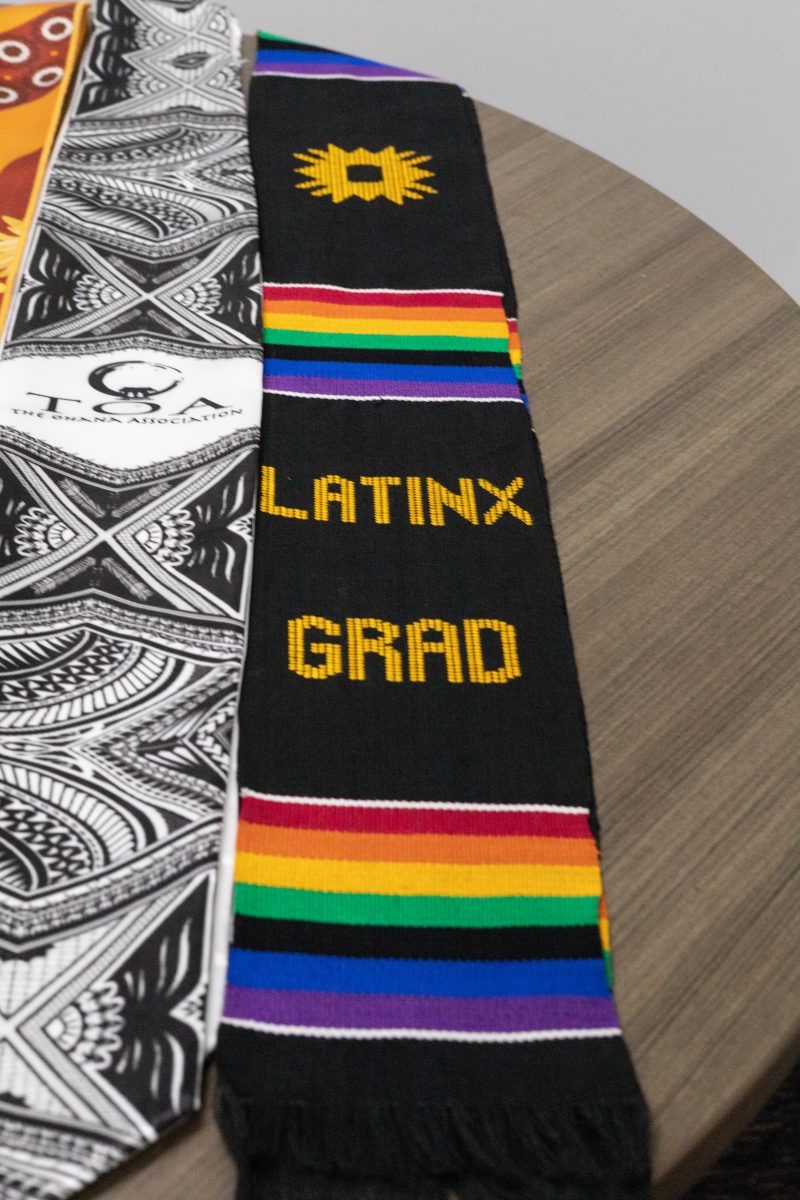
In 1994, Carl Wilkens signed a document refusing help from the United States government, which was working to get him out of Rwanda safely. The only American to stay in Rwanda during the genocide, Wilkens spoke to attendees Friday evening in the first of many lectures held at Weber State University to commemorate the 20th year since the Rwandan Genocide.
Wilkens moved to Rwanda to work for Adventist Development and Relief Agency, an organization with the Seventh-day Adventist Church that does development and humanitarian projects all over the world.
Wilkens was able to get his wife and children out of Rwanda safely, but he stayed behind to continue to help the people of Rwanda.
“My wife and I, we talked, and we prayed, and we both just felt that this is the right thing to do,” Wilkens said.
Wilkens kept in contact with his wife through ham radio. He said the radio contacts were instrumental in letting his wife know he was all right and her letting him know she still supported the decision for him to stay in the country.
“Those radio connections went a long way, dealing with the separation,” Wilkens said.
He had no idea how long the conflict would last, thinking it would only be a few weeks for the violence to dissipate. The genocide ended up lasting more than three months and claiming millions of lives.
“We had no idea how many people would be killed,” he said.
The Rwandan Genocide began in 1994 after a plane carrying Prime Minister Agathe Uwilingiyimana was shot down. The assassination of Uwilingiyimana escalated the racial tensions between the Hutu majority and Tutsi minority. The Hutu blamed the Tutsi for her assassination and began a systematic extermination of the Tutsi.
“They had machetes, they had killing lists, they had a plan,” said Stephanie Wolfe, WSU political science professor.

Wolfe explained that while there is academic debate on who shot down the plane, she believes Hutu extremists committed the murder in order to blame the Tutsi.
Wilkens told a story of him going to an orphanage to get water for children who were dying of dysentery, and militia showed up saying they were going to kill everyone at the orphanage the next day. Police officers then showed up and said they could hold them off for a few hours while Wilkens looked for help.
Wilkens said he was terrified of leaving, because he thought the militia would start firing on the children. He eventually got in contact with Prime Minister Jean Kambamda’s secretary, who suggested he ask the prime minister for help.
Wilkens resisted, since Kambamda had been responsible for the genocide. However, Kambamda did oversee the stop of the massacre.
Wilkens said this shows one can find allies even among the enemies, and that even the most “evil” of people can make the moral decision.
The WSU chapter of Amnesty International, a worldwide human rights organization, helped sponsor Wilkens and the conference over the weekend.
“The best way is to prevent these things from happening is to learn about the history,” said Taylor Greenwell, events coordinator for Amnesty International. “If we learn about these mistakes in the past, we’ll have the information to never allow it to happen again.”
Julie Ikeda, student president of the club, said she starts discussions about urgent actions the club can take in meetings. “It’s good for students to know what’s happening in the world and (that) there are giant human rights abuses in the world,” she said.Wolfe brought the WSU chapter of Amnesty International back to the university due to her interest in human rights.
The conference continued throughout the weekend, with various panels and presentations on difference topics related to the Rwandan Genocide. Jacqueline Murekatete, a survivor of the genocide, will speak to students Monday in Room 229 of Elizabeth Hall, 12:30-2 p.m.




















